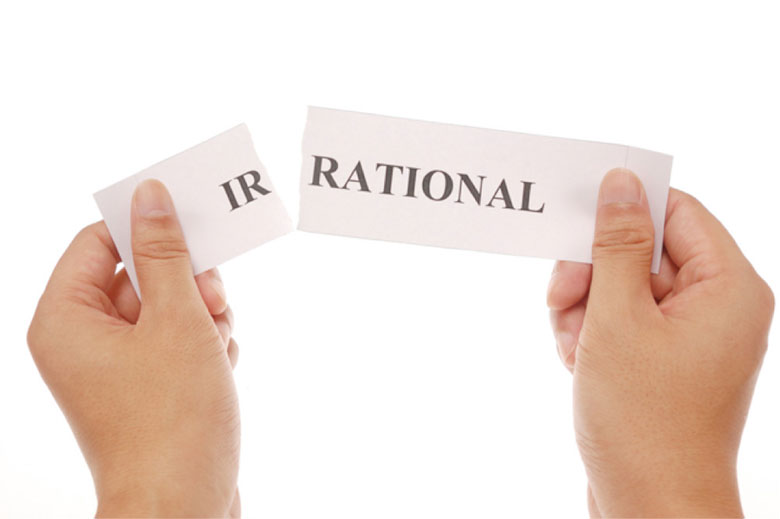How to Pick a Career Based on Your Personality
by StudyMalaysia.com on January 30, 2020 | Top Stories, Career Guide

Finding the best career means you have to start with finding the right educational institution. However, sometimes studying can be rather difficult. For example, you will need to write numerous papers like essays, research papers, case studies, etc. But if you need help with, let’s say, a case study, you can order it online following this link.
It is customary in society to talk about what career ambitions we should have and what opportunities are open to us. It can often feel strange to us. In terms of career, society is similar to your distant relative with whom you met by chance: for 15 minutes in a row, he or she gives you incoherent advice which you didn’t ask for, and you nod affirmatively, although you perfectly understand that he or she doesn’t know anything, and all ideas are out of date by at least half a century.
Society is like this distant relative, and the point of view of the majority is like its pompous monologue. However, we do not miss public opinion: we listen, remember, and do as they say. Does this seem strange to you?
I am not going to give you advice. As it seems to me, this article will help you make the right career decisions and do what you really want to do, not forgetting about the rapidly changing modern labor market. Yes, while you are not a professional, you will certainly better understand what you are really interested in.
This article is for those who have not yet determined their occupation and are not sure what they want to do. It is suitable for those who are in the middle of their career paths but are not sure of the correctness of their choice. I hope that the information below will help you reload your mindset and clarify controversial issues.
Extroverts and introverts
Extroverts’ attention is directed primarily to the outside world. They perceive it as the sum of objects: people, subjects, deeds. They have a wide range of interests. The expansion of interest is much easier than deepening. Extroverts are not inclined to educate people: people are perceived as they are. In an unfavorable situation of communication, an extrovert is unlikely to affect a person, rather the situation will change his or her own attitude towards the person. Consider the following careers: showman, travel agent, serviceman, correspondent (journalist), mediator, politician, and actor.
Introverts pay attention mainly to their inner world and to the relationship between people. Their interest in the subject is deep. Introverts are more inclined to create and remake objects, to build deep knowledge. They focus more on relationships. The professions for an introvert are as follows: programmer, engineer, driver, accountant, veterinarian, writer, translator, artist, proofreader, editor, librarian, statistician, florist, laboratory assistant, and other professions that allow you to work alone.
Extroverts and introverts have a number of differences. For example, extroverts are distinguished by wide gestures; introverts usually do not gesticulate or gesticulate little. Introverts are usually described as “shy,” though this is not exclusive to introversion. This is not an inner shyness, but simply their own way of expressing activity.

Rationals and irrationals
Irrationals are focused on direct perception and seek to see new opportunities. Sometimes they are in no hurry to make decisions, and for a long time, they observe the events that occur, collecting information. Irrationals respond more quickly to a volatile situation. They are also called “perceiving.” Their behavior and emotions are difficult to predict in advance. They reach the maximum creative upsurge when they need to find a way out of moral or financial difficulties. Their driving force is the impression. If you are irrational, build a career in the following spheres: advertising, marketing and PR, emergency medicine, firefighters and rescuers, journalism (especially reporting), design, advertising, copywriting, creative professions, and trade with high checks – real estate, cars, and more.
Rationals, guided by reason and traditions, strive to live with the decision made, to have a firm judgment on the main issues of life. If circumstances change, they need some time to adjust and adapt. These types are also called “judging” or “reasoning.” The rational immediately react with emotion to emotion, with an act to an act, therefore representatives of this type seem to be strict and decisive. Their emotions are sometimes too harsh and cold. Rationals often excel in programming, statistics and accounting, and finance. You can also consider professions related to catering, animal husbandry, and plant growing, engineering, surgery, pedagogy (especially the exact sciences), and linguistics.

Ethicists and logicians
Ethicists compare the content of judgment with accepted moral norms and values in society. Representatives of this type also have their favorite expressions: “existing custom,” “spectacular detail,” “beautiful form,” “I like (dislike),” “humane,” etc. In addition, they often use colorful adjectives and epithets in conversation: wonderful, amazing, pretty, creepy, disgusting. Ethicists can find work in a variety of organizations, including hospitals, physician group practices, government agencies, insurance companies, pharmaceutical companies, academic institutions, and medical research centers.
Logicians are guided more by objective laws, or true statements. From here, the characteristic expressions of representatives of a logical type follow: “we will clarify,” “effective evidence,” “we will analyze the details,” “we will think over the solution,” “it is necessary (not necessary) for the case,” “it deserves (does not deserve) trust,” etc. Logicians should choose careers related to accounting, finance, management, marketing, and law.
In order to correctly determine your personality type, you need to seek the advice of an experienced psychologist or pass special diagnostic tests. In this way, you can find an ideal career for your personality.
Related Articles:
You May Also Be Interested In...
Memilih Program Pra-Universiti yang tepat untuk anda: Program Asasi oleh Universiti dan Kolej Swasta
![Memilih Program Pra-Universiti yang tepat untuk anda: Program Asasi oleh Universiti dan Kolej Swasta - StudyMalaysia.com]() Sekiranya anda mempunyai kelayakan SPM dan anda merancang untuk mengik...
Sekiranya anda mempunyai kelayakan SPM dan anda merancang untuk mengik...What to do after getting your SPM or STPM results?
![What to do after getting your SPM or STPM results? - StudyMalaysia.com]() You’ve probably been feeling anxious for days in anticipation of you...
You’ve probably been feeling anxious for days in anticipation of you...�Global Employability Ranking 2014
![�Global Employability Ranking 2014 - StudyMalaysia.com]() For prospective students choosing a university, some may be interested...
For prospective students choosing a university, some may be interested...�Students Loans Offered by Banks and Other Organisations in Malaysia
![�Students Loans Offered by Banks and Other Organisations in Malaysia - StudyMalaysia.com]() With the recent announcement by PTPTN on the new student loan scheme t...
With the recent announcement by PTPTN on the new student loan scheme t...Ramadan Recipes - Murtabak Royale
![Ramadan Recipes - Murtabak Royale - StudyMalaysia.com]() If you’re looking for some recipes to help you prepare for iftar or ...
If you’re looking for some recipes to help you prepare for iftar or ...�7 Ways to Motivate Yourself When You Don
![�7 Ways to Motivate Yourself When You Don - StudyMalaysia.com]() Ever felt that there are days where you just want to sleep in even if ...
Ever felt that there are days where you just want to sleep in even if ...






























